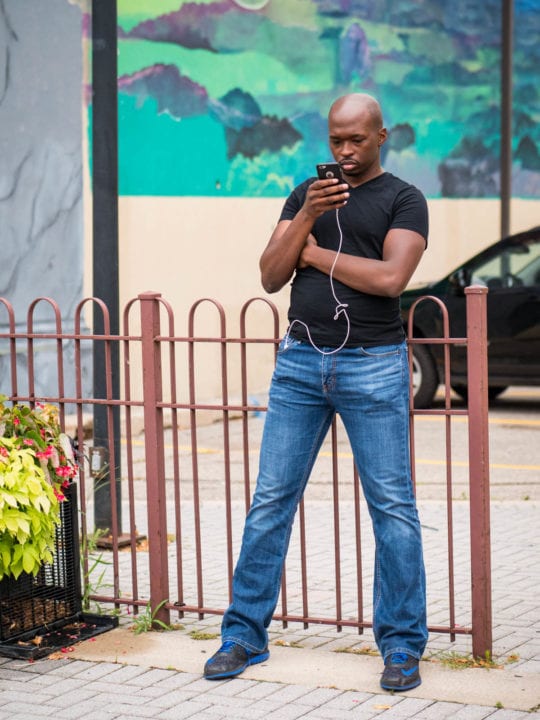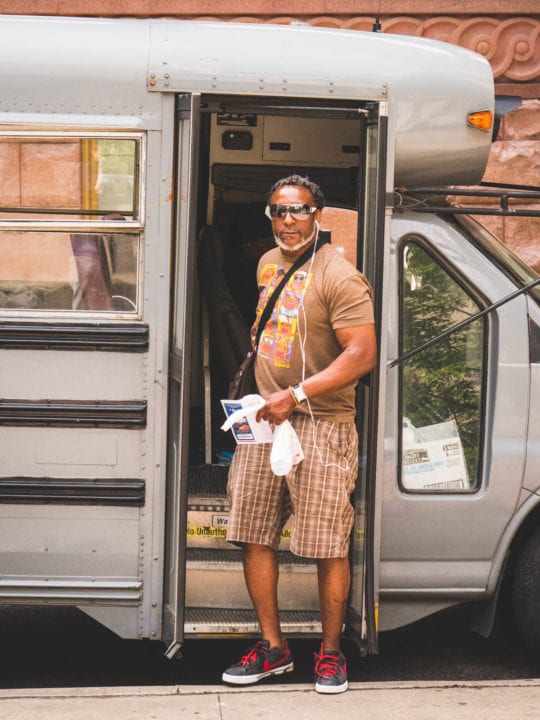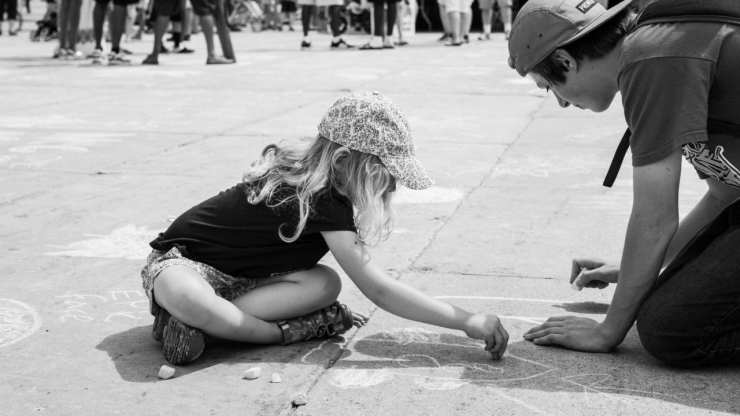As someone who regular photographs events in public spaces, I’ve gotten used to photographing people and being asked what I’m doing, who I’m with and where people can see the photos I’ve taken.
All that being said, every once in a while I’ll run across someone who simply doesn’t want their photo taken. In today’s social media age, it’s rare, but it does happen.
That brings up the question. When you’re photographing in public spaces — whether it’s for a client or not — what’s allowed? What should you avoid?
Basic rules to follow
While I’ve never come across anyone who has been angry for taking their photo, I’ve heard stories from other photographers who have dealt with this. The truth of the matter is, if you’re in a public space in the U.S. and just taking photos for personal use (not selling them), you can take a picture of anyone.
Of course, there’s always a few exceptions to every rule.

Reading expressions and movements
When I’m in a public space, I try to make note of people’s facial expressions. If they show a frustrated look when I take their photograph, I immediately delete it. If they turn around, I know they don’t want to be photographed. And of course if they come up and ask me explicitly not to take their photograph, I abide.
What I find to happen more, however, is that people are curious as to whom I’m shooting for. In this case, I tell them, and then hand them my business card and tell them where they can find the photos I took of them.

If I’m not shooting for a client, I simply tell them that “I’m out documenting the event for practice,” or “I’m just out here practicing my photography, and I loved the (clothing you’re wearing, game you’re playing, dancing you’re doing, etc.).” People have never questioned me on this, and oftentimes that leads to a more in-depth conversation about photography in general. Again, it’s another chance to pull out your business card or show people your Instagram feed.
Things get even trickier when it comes to kids. I’ve surprisingly not had this happen a lot, but oftentimes parents don’t want their kid’s photos plastered all over social media for the world to see. Typically the parent will ask me politely not to take their photograph, and I tell them I’ll delete it right away. They thank me, and we go our separate ways.
Kids in public
Things can be tricky when it comes to kids. Understandably, oftentimes parents don’t want photos of their kids plastered all over social media for the world to see.

If it’s a posed photograph I’m after, I always ask the parents if I can jump in and take a quick photo. If it’s something candid, I usually give a smile to the parents to let them know I’m going to probably photograph their kids in a few seconds.
In the rare case they don’t want their kid’s photograph taken, they usually ask politely. If they’re just hesitant to make sure I’m not some creeper out there, they just ask who I’m with and that’s the end of it.
The homeless
I have a self-imposed rule that I never photograph a picture of homeless people, unless I’m specifically working on a campaign for, say, a homeless shelter or religious organization. In the case you do want to take a photograph of a homeless person, give them a buck or two. It’ll show you appreciate them as human beings, instead of trying to take advantage of them.
If you don’t want to hand out money, check with your local homeless shelter to see if they offer gift cards of sorts that you can purchase in advance to hand out. One of the shelters in my area offers this, and I know several people hand these out when they see people struggling, so they can get a free meal, a bed or a cup of coffee.
Be prepared
Really, having photography etiquette in the public is all about common sense. If you feel uncomfortable taking a picture, chances are the subject will be too. Be friendly. Have business cards ready to show that you’re an actual photographer (even if you don’t consider yourself a pro). Be professional, but still have fun with it. And most importantly, be prepared to walk away in case you have to.
If you have any questions on what is and what isn’t allowed, check out this great resource, “The Photographer’s Right” by attorney Bert P. Krages II. I carry this in my bag whenever I’m photographing in a public space, just in case.
Tell your story with the second annual Visual Storytelling Conference!
Experience four days of interactive, online training sessions featuring a range of educational content with experienced photographers and content creators. This free event kicks off with a series of technical boot camps to build essential skills, followed by live, online sessions on photography, video, business and social media. Join live from March 10-13, 2022!
